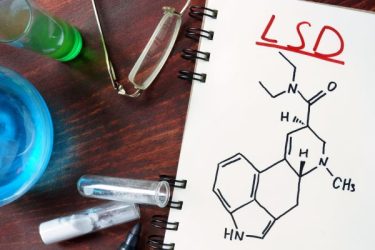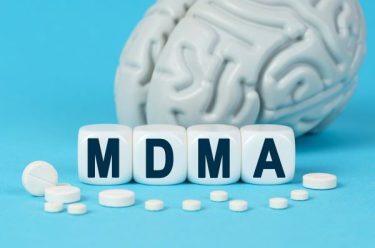Psychedelic medicines: are they gaining traction in Europe?
Posted: 13 April 2023 | Carissa Kendall-Windless (Pinsent Masons), Sian Banks (Pinsent Masons) | No comments yet
Carissa Kendall-Windless and Sian Banks of law firm Pinsent Masons discuss the development of psychedelic medicines and the legal and regulatory challenges that must be overcome for psychedelics to become safe and effective treatment options in Europe.


Psychedelics are a class of psychoactive substances that produce temporary changes in perception, mood and cognitive processes.1 Some psychedelics are found in nature, including psilocybin, a naturally occurring molecule found in almost 150 species of mushrooms which turns into psilocin once ingested, causing psychedelic effects. Other psychedelics are man-made, such as lysergic diethylamide (LSD), which was first synthesised in 1938 by Albert Hofmann at a laboratory in Switzerland.2 LSD is widely known as the archetypal psychedelic from the 1960s, though there are also many other substances described as psychedelics.
As psychedelics diffused into wider society and recreational use increased, some individuals reported…ongoing symptoms after the drugs had left the body”
At a time when psychiatry lacked effective medical therapies, the discovery of LSD was of interest. However, as psychedelics diffused into wider society and recreational use increased, some individuals reported a variety of ongoing symptoms after the drugs had left the body. Eventually, the unethical and covert use of psychedelics, along with a general hardening of socio-political attitudes towards drug use, contributed to the decision to place psychedelics in Schedule 1 of the 1971 United Nations (UN) Convention on Psychotropic Drugs,3 which was designed to control the use and availability of such drugs. Schedule 1 is the most restrictive, categorising its substances as having “little or no therapeutic value” and prohibiting use.
As a result, medical use ceased and research stopped across the globe. That is, until the turn of the millennium, when these substances piqued the interest of clinical and academic researchers, again.
Development of psychedelic treatments
Companies are conducting exploratory research into the potential of hallucinogens for treating illnesses”
Today, although access to psychedelic substances remains restricted, they are being investigated as therapies for several mental health conditions. An increasing number of companies are conducting exploratory research into the potential of hallucinogens for treating illnesses such as anxiety, depression, post-traumatic stress disorder (PTSD), schizophrenia and anorexia.
Given that the World Health Organization estimates that one in eight people globally live with a mental disorder,4 developing these new treatments would be life-changing for millions of people, especially given that some are being investigated for treating conditions in groups where traditional treatments have failed.
Psychedelic therapies could be the next breakthrough area in mental health treatment. However, there are high legal and regulatory hurdles to clear, which can be at odds with the clinical benefits and commercial potential.
Legal and regulatory hurdles facing psychedelics


There is wide variation in approach to drug prohibition throughout Europe, due to the flexibility allowed by the UN Convention on Psychotropic Drugs. For example, the relaxed attitude towards cannabis in the Netherlands is well-known and Portugal has decriminalised the possession and consumption of all illicit substances since 2001.
Many psychedelic substances are classified as Schedule 1 in the corresponding European legislation (eg the Misuse of Drugs Act 1971 and the Misuse of Drugs Regulations 2001 in the UK), which determine the circumstances in which it is lawful to possess, supply, produce, expert and import controlled drugs. The Schedule 1 classification means that these substances cannot be administered by doctors and, though they may be used for the purposes of research a government licence is often required. These restrictions provide the first obstacles to scientific research and commercial development.
There is increasing pressure to re-classify psychedelic substances so that they can be administered by doctors and research activity can progress”
Particularly in light of the UN’s re-categorisation of cannabis and removal from its Schedule IV list of “most dangerous drugs”,5 there is increasing pressure to re-classify psychedelic substances (particularly psilocybin) so that they can be administered by doctors and research activity can progress.
Legislative hurdles aside, in the same way as any other pharmaceutical companies, psychedelics companies will need to obtain regulatory approvals in the countries where they will carry out clinical trials or market products. As clarified by a recent letter to MEPs from the European Medicines Agency (EMA), the requirements for marketing authorisation (MA) applications for psychedelic medicinal products are the same as for any other medicine in the EU/EEA, and the application must demonstrate that any potential risks are outweighed by the therapeutic benefits of the product.6 Therefore, the quality of data provided to regulators will be key in obtaining MAs and subsequently marketing of psychedelic medicines.
Psychedelic research: evaluating the fast-evolving regulatory roadmap
Psychedelics: the position in Europe
The EMA’s recent letter confirms that as of 17 February 2023 in the EU,6 there were:
- 11 ongoing clinical trials in EU with psilocybin for a range of central nervous system conditions
- four ongoing trials with MDMA
- one trial with LSD.
However, in terms of legislature and regulator engagement, Europe has up to now been lagging significantly behind in its approach to psychedelics as compared to other nations.
The US Food and Drug Administration (FDA) has decided to fast-track psilocybin for depression, with full support from President Biden’s administration. Additionally, several US and Canadian states have legalised or decriminalised magic mushrooms.


Unfortunately, no similar European initiatives have taken flight up to now. There is likely to be added complexity due to the trans-jurisdictional nature of European legislation and regulation, the fact that these substances remain illegal in most European countries and the lack of a proactive central body to promote and fund this science (as has been effective in the US and Australia).
On 3 March 2023, the EMA issued its letter to MEPs setting out its initial approach to psychedelic medicines”
However, we are seeing some green shoots appear in the European approach to psychedelic medicines. On 3 March 2023, the EMA issued its letter to MEPs setting out its initial approach to psychedelics and encouraging developers to engage with the EU regulators.6 It also states that a multi-stakeholder workshop is being planned for Q3/Q4 of 2023, which will focus on promoting the development of psychedelics that address unmet medical needs.
UK’s position on psychedelic medicines
These developments do not directly affect the UK, which has left the EU. However, some similar activity is being seen this side of the channel. The UK’s regulator, the Medicines and Healthcare products Regulatory Agency (MHRA), confirmed that it would update its guidance on the use of real-world data, which will assist developers to achieve regulatory approval more quickly.
Additionally, this issue was debated briefly in the House of Commons. The government confirmed it had been reviewing advice on reducing barriers to research with controlled drugs, which focused on synthetic cannabinoids, and was commissioning more research with Schedule 1 drugs more widely.8
Where does Europe stand globally in psychedelic medicines development?
The EMA workshop later this year…may shed light on how the EMA can promote psychedelics to assist with addressing unmet medical needs”
Europe is still somewhat behind North America and Australia in grappling with the balance between the potential clinical benefits of psychedelics and the prohibition on misuse of drugs. We are seeing progress and await the outcome of the EMA workshop later this year which may shed light on how the EMA can promote psychedelics to assist with addressing unmet medical needs.
From an intellectual property perspective, this could be an opportunity to attract further scientific innovation in Europe, alongside patent applications which protect innovative discoveries. This could be an opportunity for the EU to showcase its new Unitary Patent and Unified Patent Court, offering potentially quicker, simpler and cheaper patent filing strategies as well as a pan-European enforcement regime for psychedelics developers.
About the authors


Carissa Kendall-Windless is a Senior Associate within Pinsent Masons’ international intellectual property group. She has specialist expertise in patent litigation across both the telecommunications sector as well as pharmaceutical innovator and biosimilar sectors.


References
- Nichols DE. Psychedelics. Pharmacological Reviews. 2016;68(2):264–355.
- Hofmann A. How LSD originated. Journal of Psychedelic Drugs. 1979;11(1-2):53–60.
- Schedule 1 of the 1971 United Nations (UN) Convention on Psychotropic Drugs [Internet] United Nations Office on Drugs and Crime [cited 2023Mar] Available from: https://www.unodc.org/pdf/convention_1971_en.pdf
- Mental disorders [Internet]. World Health Organization. World Health Organization; 2022 [cited 2023Mar]. Available from: https://www.who.int/news-room/fact-sheets/detail/mental-disorders
- UN Commission on narcotic drugs reclassifies cannabis to recognize its therapeutic uses [Internet]. World Health Organization. World Health Organization; 2020 [cited 2023Mar]. Available from: https://www.who.int/news/item/04-12-2020-un-commission-on-narcotic-drugs-reclassifies-cannabis-to-recognize-its-therapeutic-uses
- Cooke E. On substances with psychedelic properties. 2023. Available from: https://www.ema.europa.eu/en/documents/other/ema-reply-letter-members-european-parliament-mr-agius-saliba-ms-ries-mr-duda-mr-biedron-ms-cerdas-ms_en.pdf
- Chrysanthos N, Dow A. Australia becomes first country to recognise psychedelics as medicines [Internet]. The Sydney Morning Herald. The Sydney Morning Herald; 2023 [cited 2023Mar]
- House of Commons – Hansard – UK parliament [Internet]. Proscribed Psychedelic Drugs Volume 729: debated on Tuesday 14 March 2023. [cited 2023Mar]. Available from: https://hansard.parliament.uk/commons/2023-03-14









